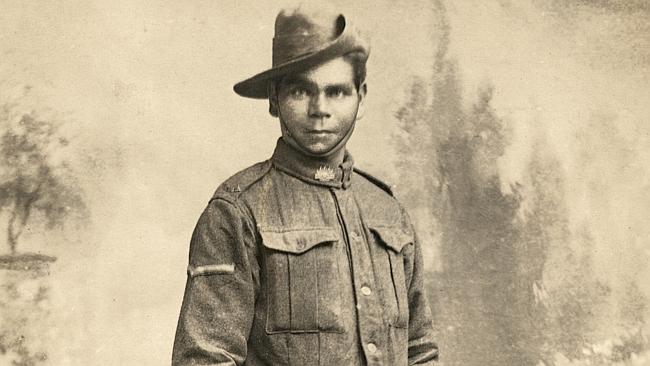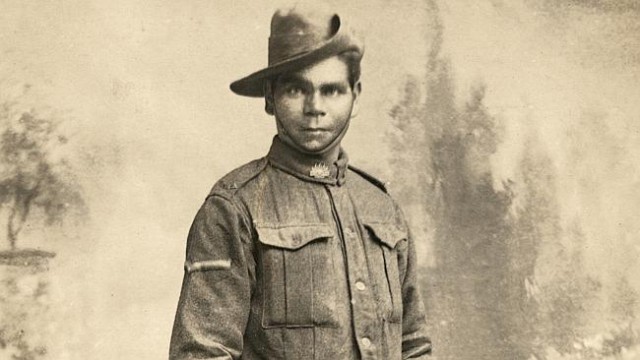Steps to reconciliation with Australia’s indigenous population, the Aboriginal Australians, have gradually taken place over the years, most notably with a referendum in 1967 to improve the rights of Aborigines, and an apology from the Prime Minister, Kevin Rudd, in 2008.
But in the years surrounding World War One, Australia’s Aboriginal population were treated just like other minority races or ethnicities around the world. They were not allowed to serve with the country’s armed forces, as stated under Australia’s Defence Act of 1903.
This week, the centenary of the Anzacs arriving in Egypt is being commemorated. There were around 40,000 Anzac soldiers sent to take part in the Great War, and, in fact, of those around 1300 were Aboriginal.
Even though they were prohibited to join Australia’s Army, they did anyway. Aboriginal Vietnam War veteran Gary Oakley, from the Australian War Memorial, has been researching for many years to discover what actually happened.
Battalions from the 1st Light Horse Regiment, the 12th Infantry Battalion, the 10th Battalion, the 7th Infantry Battalion, and the 9th Infantry Battalion all had Aboriginal soldierswith them when they departed Australia.
It is thought that around 50 Aboriginal soldiers fought at Gallipoli, Turkey. One of the first known Aboriginal soldiers is Lance Corporal Charles Blackman who enlisted in 1915.
To enlist, Aborigines lied about their ethnicity,changed their names, bribed medical officers, or travelled hundreds of miles to alternative recruitment centres where they would be unknown. By 1917, some Aborigines were able to join the forces, but only if they could prove they had been descended from at least one person of European origin, The Australian reports.
Even though World War One could have been seen as a European man’s problem, the Aborigines wanted to fight for their country. In the Australian Imperial Air Force Aborigines started to be treated equally with the same pay and little discrimination against them from their comrades.
Australia’s government is keen to continue righting the wrongs of the past and is in the process of amending its constitution further to recognise and give more rights to the Aboriginal people.
Australia is commemorating each of the battles its forces fought in World War One over the four year centenary, fromGallipoli to the Armistice. Included in the memorial events will be the story of the Aborigines who fought for their country, and those who gave their lives.

